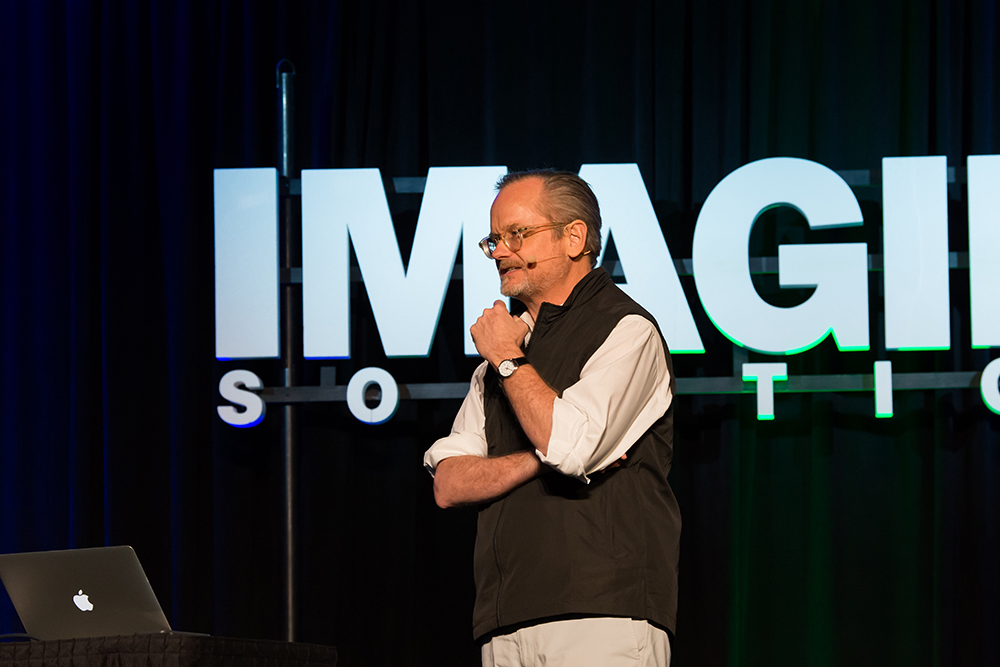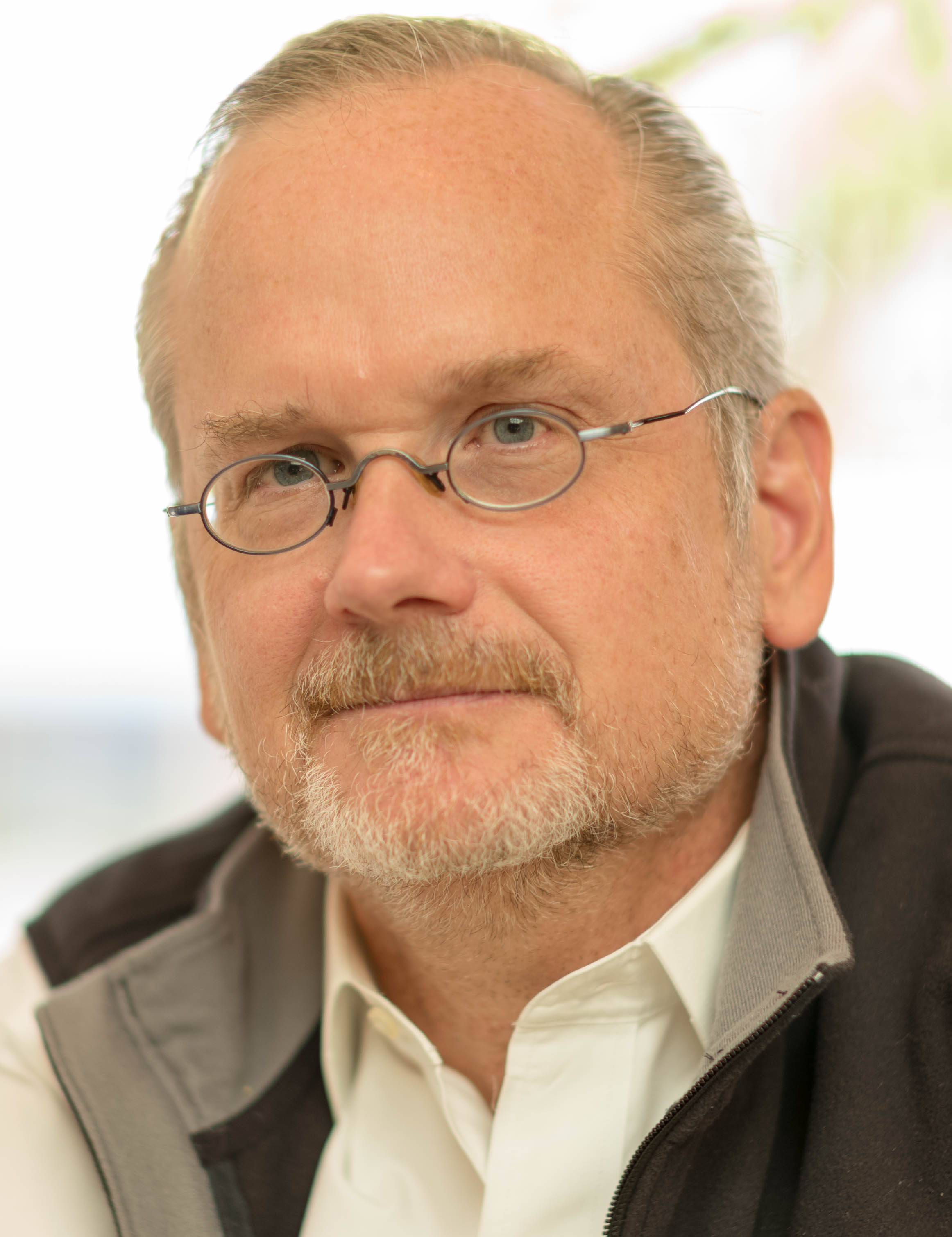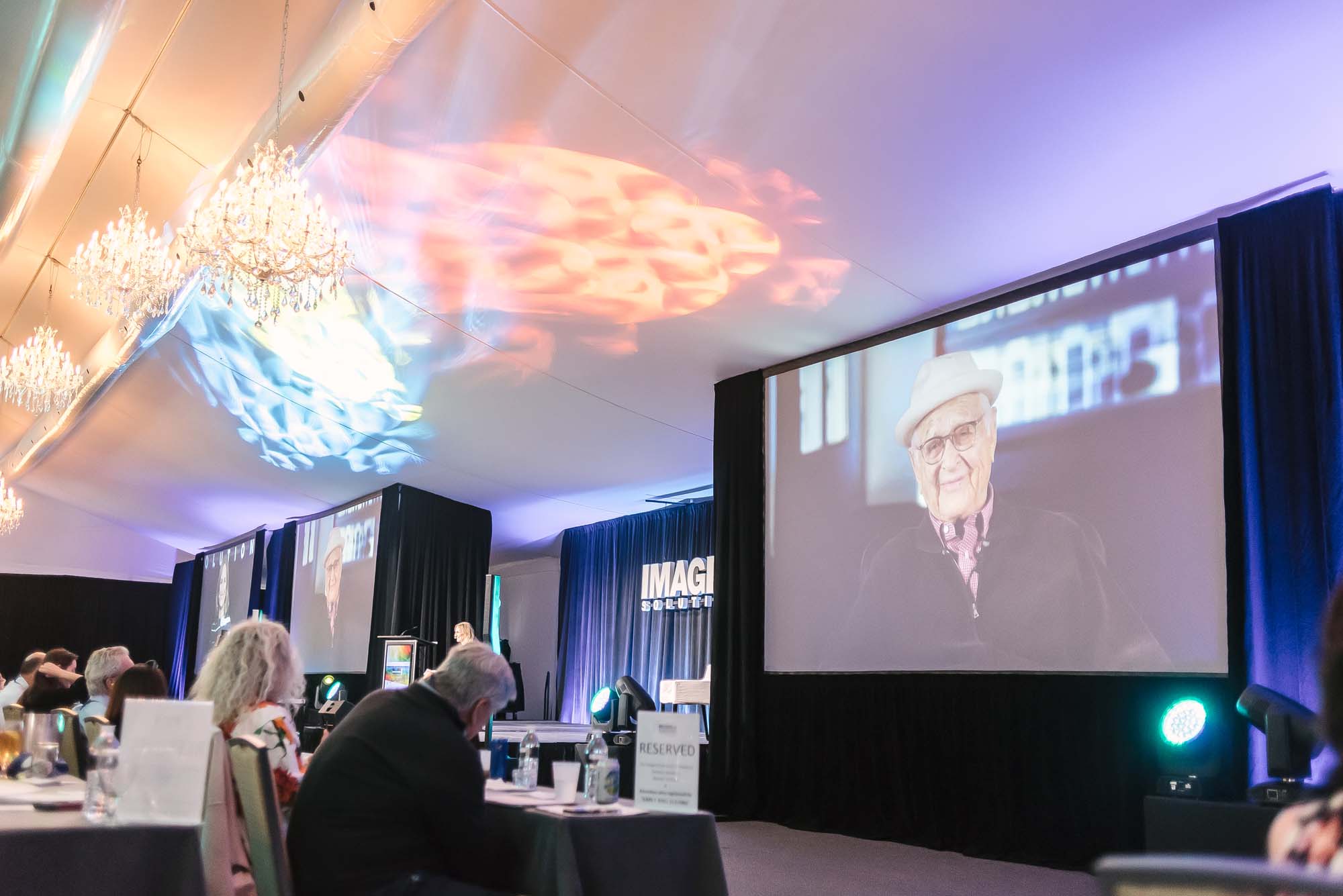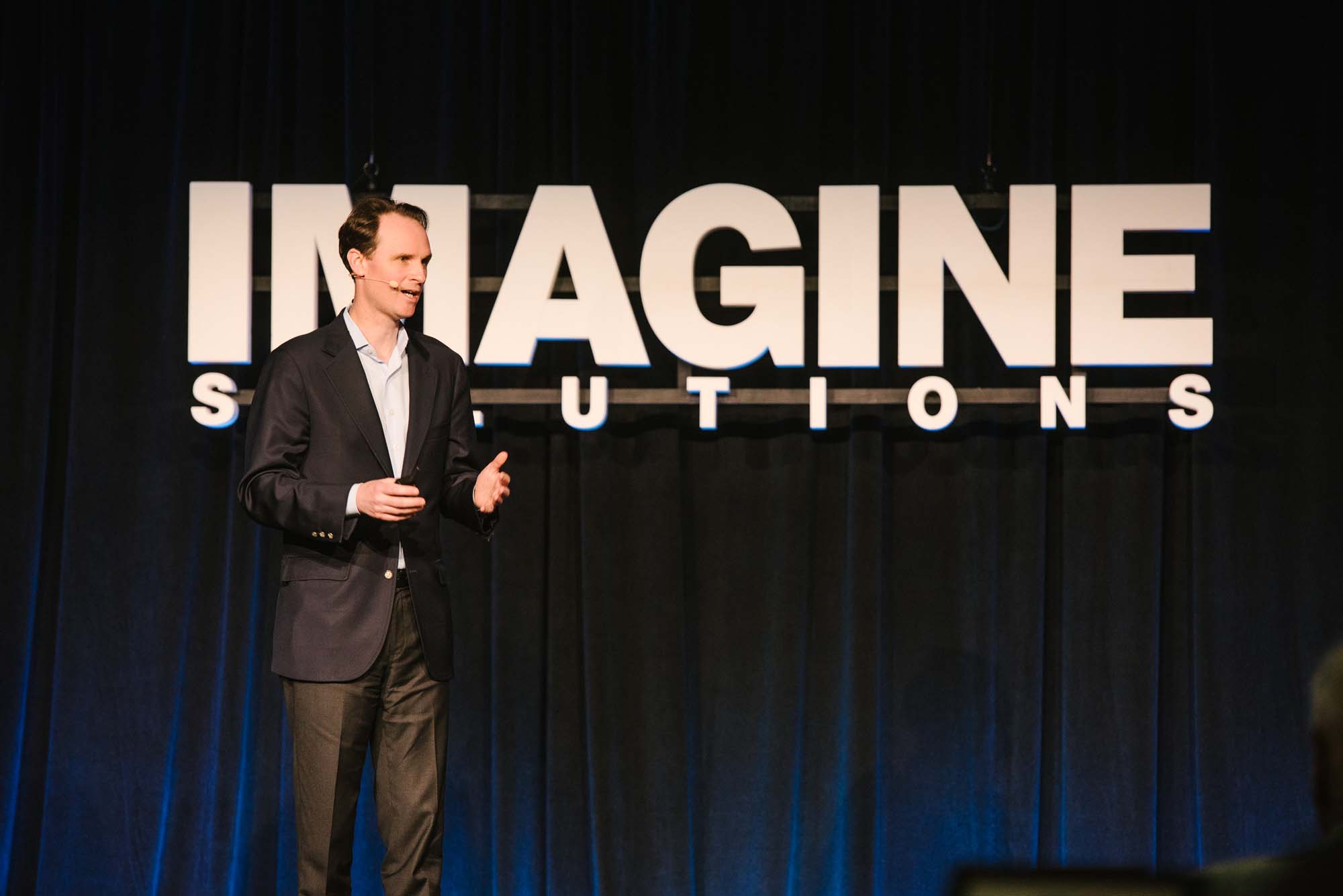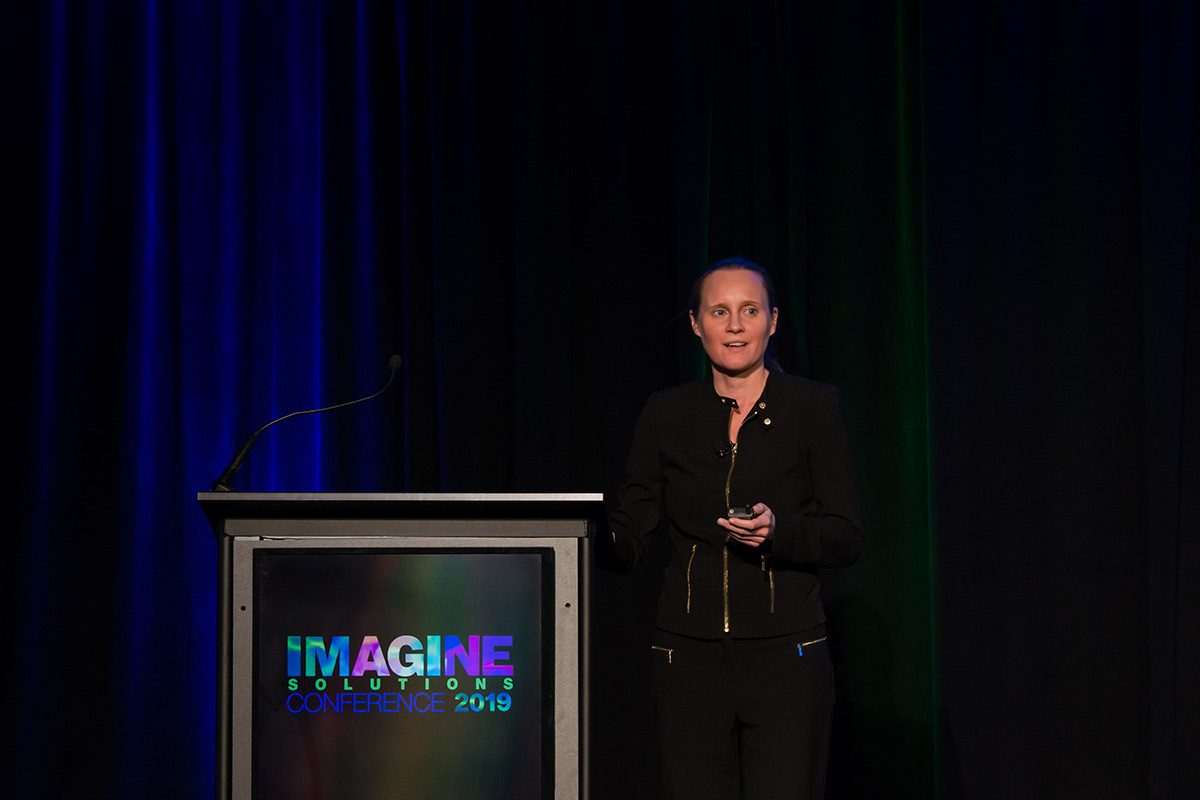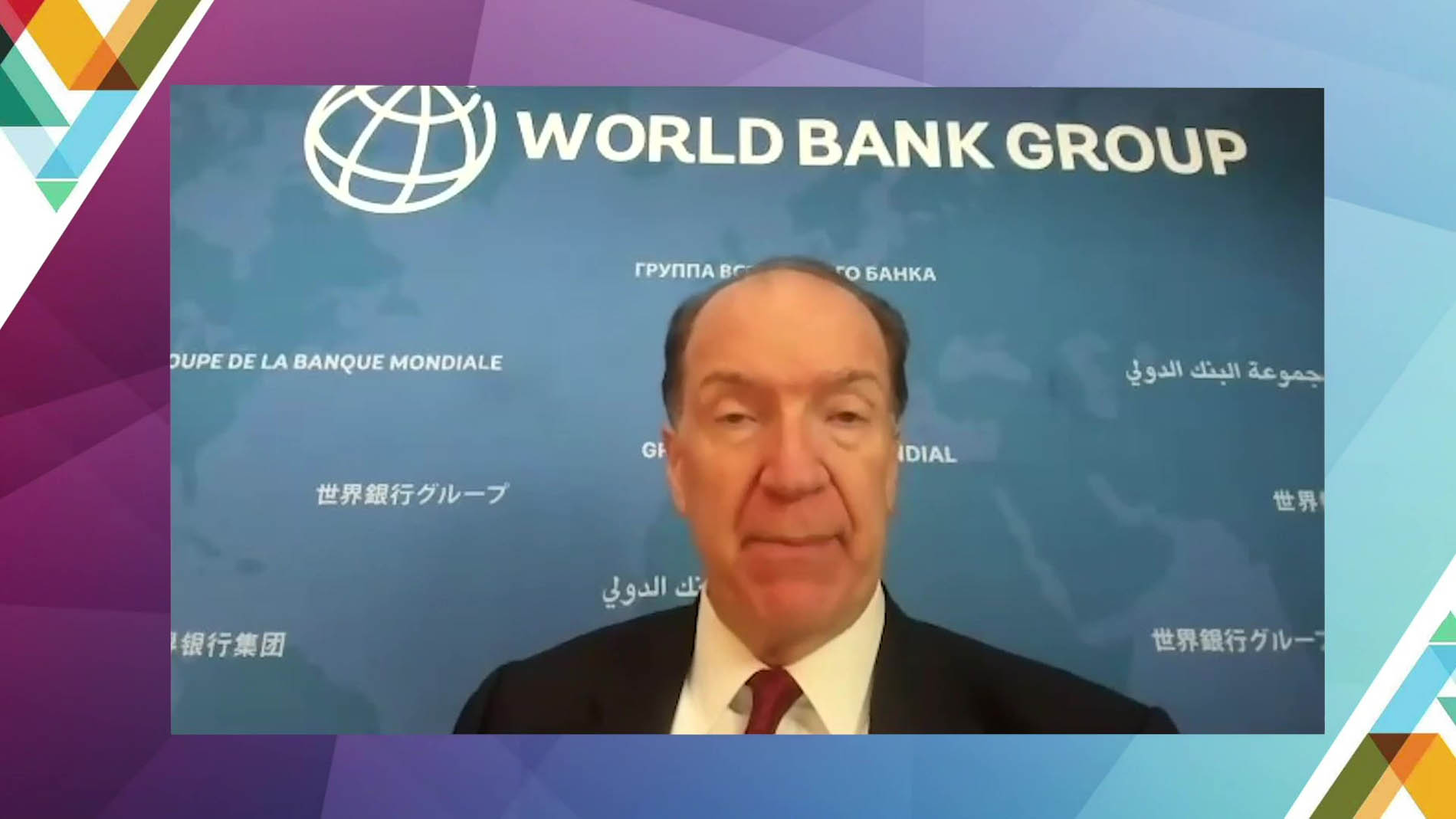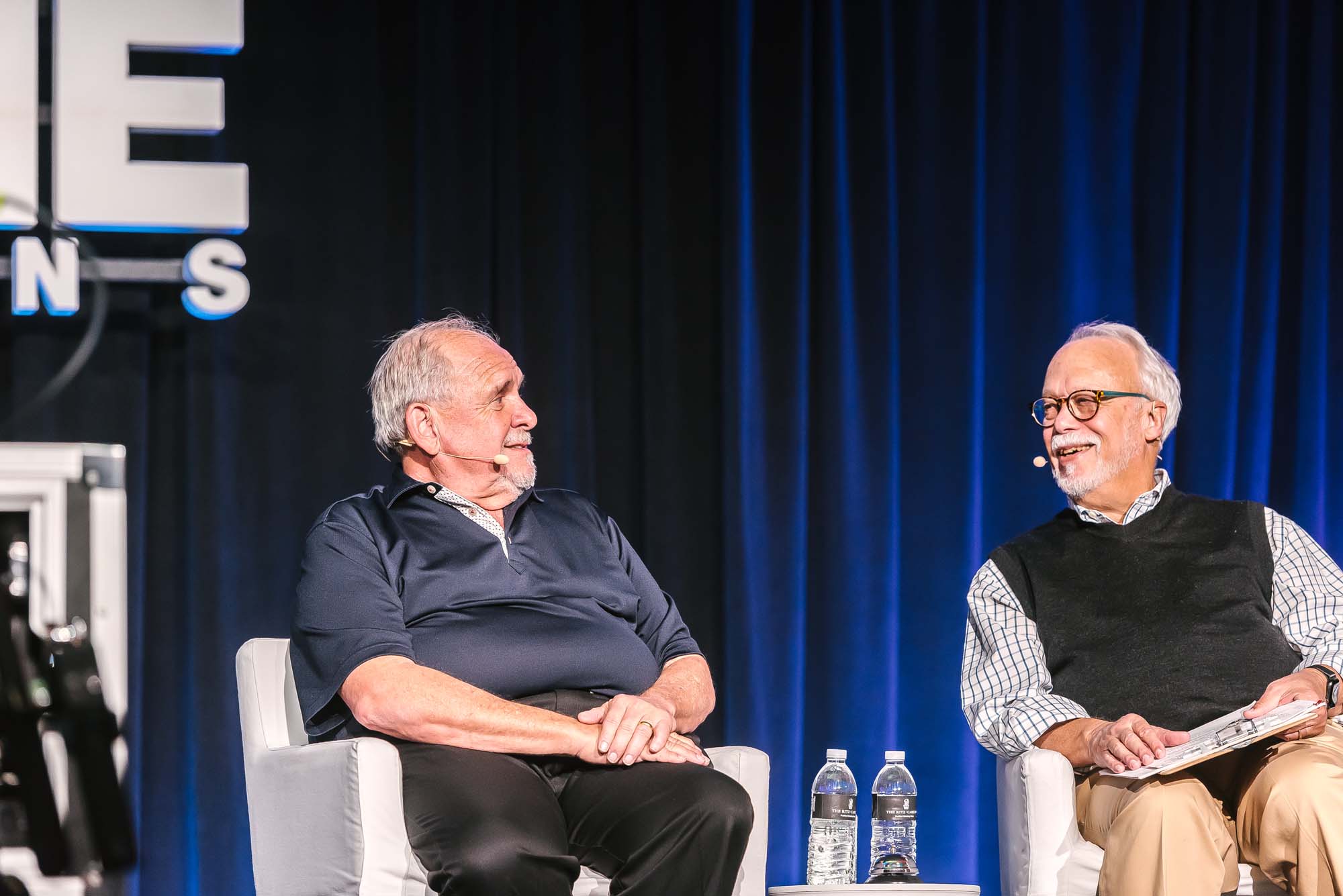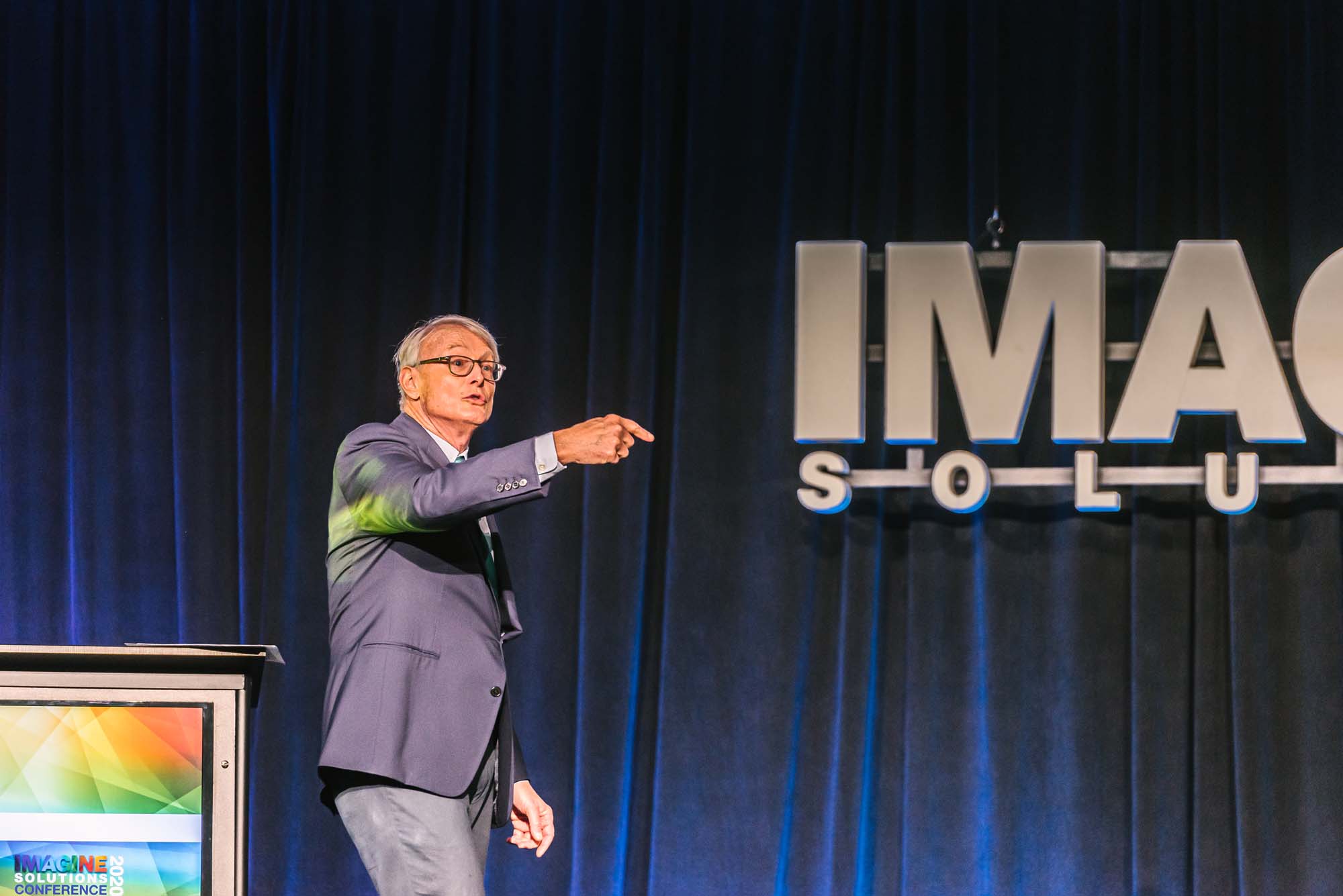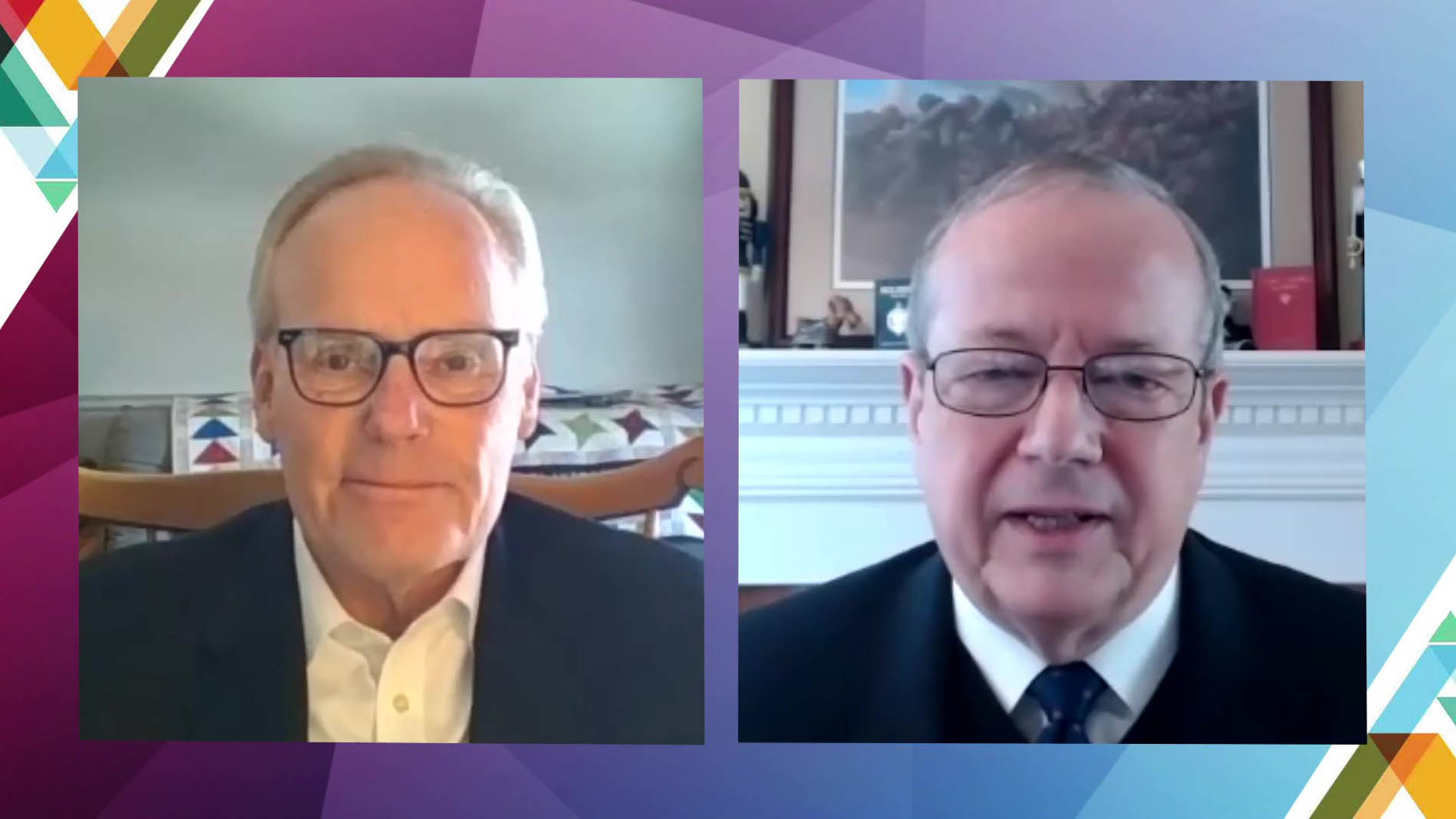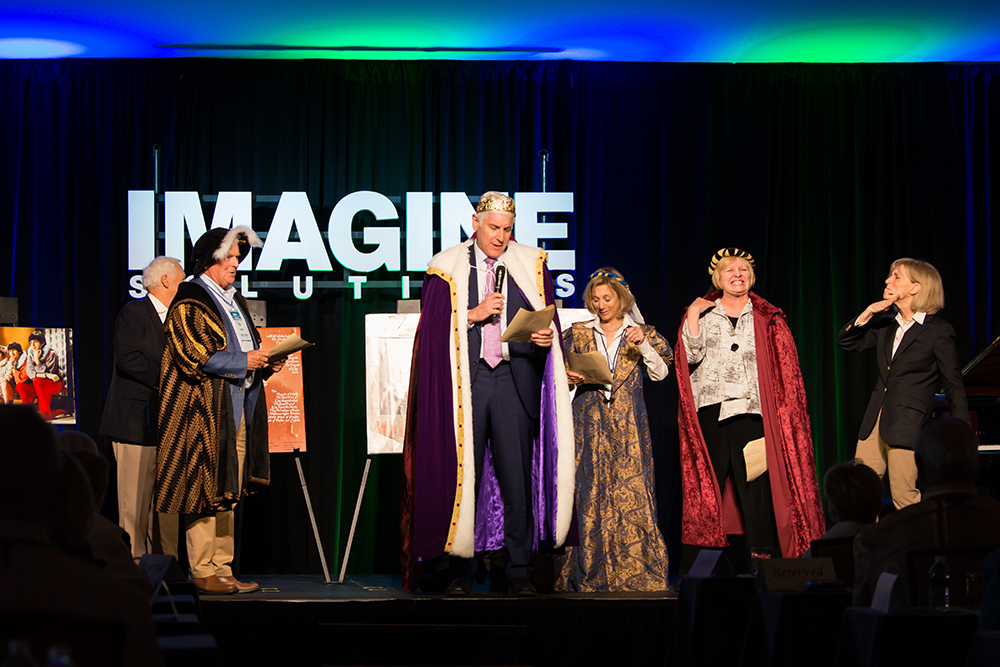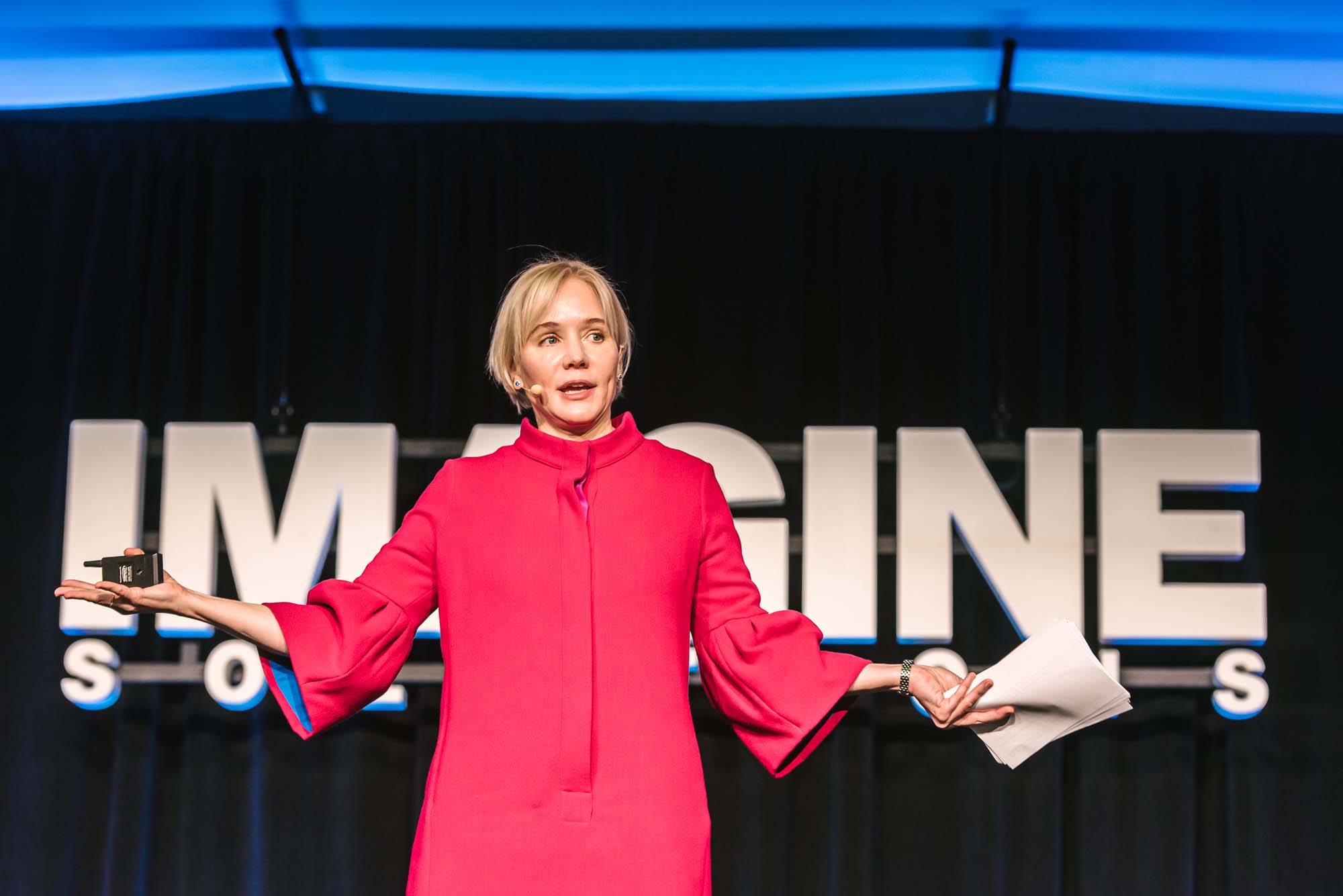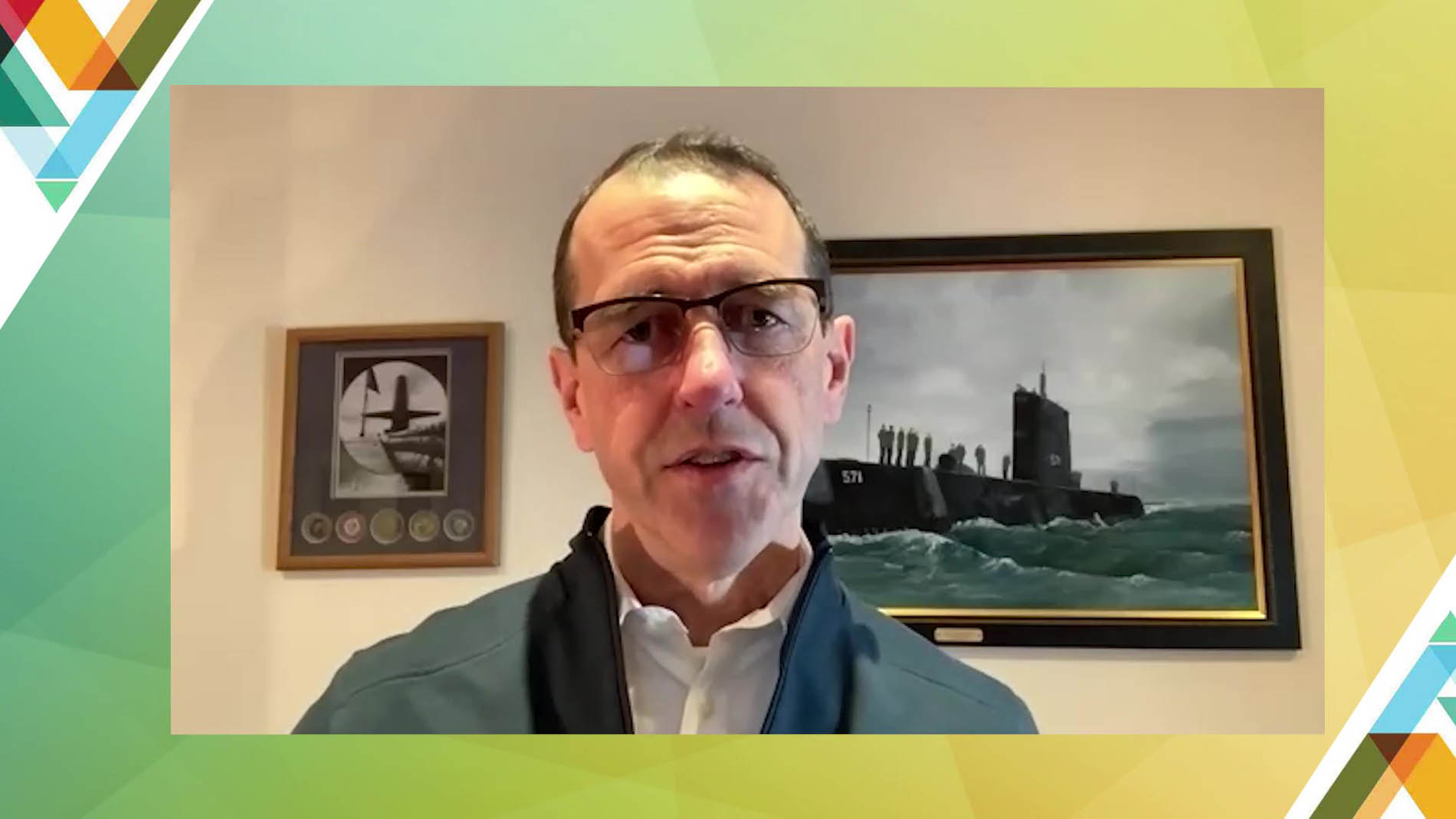To Last, First Come Practice, Unity, and Belief
Beginning with a look through the lens of Norman Rockwell’s iconic paintings, Harvard law professor Larry Lessig takes a hard look at our current society in the context of how well or, conversely, poorly our system of government is doing at delivering on traditional American standards. Lessig posits that it is the industry of politics that is failing, driven by a need to be in a perpetual state of fundraising, to the diminishment of effective governance. Increasing polarization persists, exacerbated by media partisanship on both sides, based in extreme ideology. So how do we overcome our divisions and reclaim our collective ideals? By embracing a practice of country over party, determined unity, and belief.
00.01
thank you have fun when I was a kid I used to travel to visit my grandparents in Philadelphia and they had a huge stack of Saturday evening posts that I would peruse for hours because there was nothing else to do in the days before the Internet of course and this experience gave me a sense of speaking words of Norman Rockwell through his paintings now my kids that I teach as a law professor don't really relate much to Norman Rockwell so I can't really use this much in my ordinary teaching but I thought maybe here today I could evoke something with you a recognition of the contrast between the world that Rockwell was depicting and the world we find ourselves in today so Rockwell was
01.02
obsessed with trains and trains of course at the beginning of its life at least defines the greatness of America trains here's a picture of China that's not China that's China you can't really tell much from this image if you could take away the brown lines what you would see is 18,000 miles of high-speed rail in China today built essentially over the last dozen years here's a similar map of America there's no high-speed rail on this map we have a higher speed rail less than 150 miles per hour in the Northeast Corridor but nowhere else in the United States now you might say China is much bigger than the United States you'd be wrong if you said that
02.01
you might say America loves roads of course we do might be a little puzzled by this image because they're on the wrong side of the road I thought this might be Australia but in fact there living on the right side this is just classic American drivers going up over a cliff on the wrong side of the road but yes of course we love our roads but even here according to the civil engineers of America we are more than a trillion and a half dollars behind in funding the infrastructure we need to bring America to the level that we thought our aspirations would speak to or think about health care Rockwell did many of these images of this quaint and beautiful image of health care in America you all know the numbers the statistics that show how costs in America are wildly above costs around the rest of the world and what they deliver is much less even in comparable countries we are two times as great as
03.02
the mean and even when you separate out the GDP and the cost for health care the United States is way off the graph or think about education you know these statistics in education the red lines here are the means for math proficiency you have to go very far down the list before you find a country that is worse than the United States or maybe most importantly this was an image he called utopia this idea an American ideal the Horatio Alger ideal that somehow in this great country we'd find better than anywhere else in the world the opportunity to rise that truth today is no longer a truth today as many competitors around the world find easier to demonstrate the capacity for social rise than the United States these are
04.02
changes changes in the United States and I want you to think about the way they are related to changes in our government you to recognize the way in which our government is failing you might say what's a law professor gonna tell me about government failing so I'll evoke not law professors but the Business School at Harvard here this extraordinary work by Katherine gal and Michael Porter the politics industry is failing America they say or more specifically the competition in the politics industry is failing America the business school did a survey of all of the graduates they could get to respond and ask them to identify the elements of the business environment circa 2016 and notice how in
05.00
the worst quadrant are each of these elements that I described and the political system as the thing that Harvard Business School graduates identified as the factor holding America back as they put it it's often said that Washington is broken but this is widely held belief reflects a common misunderstanding of the problem in fact Washington is delivering exactly what is Curt it's currently designed to deliver the real problem is that our political system is no longer to design designed to serve the public interest by nearly every measure the industry of politics itself is thriving the people whom the politic industry is supposed to serve have never been more dissatisfied and indeed the numbers bear them out this is the decline in public trust in the federal government this is the increasing gridlock in Congress over important issues this graph shows you the number of times Democrats and
06.01
Republicans can work together notice in the end in the most significant landmark legislation there is no working together across the lines here is the decline in moderates in the United States Senate the decline in moderates in the US House these are together a signal of a very technical legal term that legal term is a bad political reality at the core of this extraordinary American Republic so why I want to start by saying it has nothing to do with this man it's not about a man a party it's not even about what's going on right now instead what this is is what Francis Fukuyama calls the problem of a veto accuracy a veto cracy of autocracy that has developed in America over many many years indeed if you think
07.04
back to the framing and ask who would that what was the number of people in our government that it took to veto new ideas becoming law the framers of our Constitution were obsessed with a very complicated system almost a Swiss watch like system that we now call the Constitution creating elaborate checks and balances to slow the process of legislating but in that system the majority of one house could block any new idea from becoming law now if a Constitution when it was framed never imagined political parties George Washington thought they would be the great downfall of a republic but very soon into Republic parties emerged and when the parties emerged what that meant is the number that took to veto was the majority in one party now most of the history of America though has had
08.01
parties of a very particular kind parties for most of America were mixed politically they were conservative Democrats and liberal Republicans but as this book demonstrates an Rosenfeld very powerfully in the 60s 70s and 80s the parties in America became ideological they became much more clearly Republican on the right and Democrat on the left and what that meant is the number it took to veto and he changed was the majority of one faction of one party and then in the mid to 1990s this man Newt Gingrich radically changed the job of being a congressman by turning congressmen into petty fundraisers the parties became mechanisms for facilitating fundraising to fund the campaigns to get these candidates back
09.00
into power it became a focus on money members of Congress and candidates for Congress now spend anywhere between 30 and 70 percent of their time raising money to get back into power dialing for dollars my students are sometimes puzzled by this device but you all know this is a telephone dialing for dollars but what they're calling is not the average American they're calling no more than a hundred thousand Americans who fund their campaigns and as they do that they develop a sixth sense in constant awareness about how what they do might affect their ability to raise money they become in the words of the x-files shapeshifters as they constantly adjust their views and Lahti of what they know will help them to raise money BF Skinner gave us this image of the Skinner box where any stupid animal could learn which buttons it needed to push to get the sustenance it needed to survive this is the picture of a life of a member of Congress now as they developed this
10.01
innate sense of how they need to bend to get the sustenance they need for their parties to survive Leslie burned a Democrat from Virginia describes that when she went to Congress she was told by a colleague quote always lean to the green then she clarified very quickly you know he was not an environmentalist so the point is in this world where Congress meant are fundraisers where they spend half their time on the phones raising money the number of people or forces necessary to veto new change is a few big funders of these campaigns the number to veto has constantly shrunk which means we have established this veto cracy which means we have established a government that cannot govern I don't care what issue you might care about whether its climate change or artificial intelligence and work or the data surveillance system that we see out there or financial security of the
11.01
infrastructure of our financial system until we fix the we will have no sensible policy out of our government anywhere okay now the hopeful sign about this fact is that about this we the people are united extraordinary study at the University of Maryland conducted in the middle of the 2016 campaign found almost universal agreement about the basic nature of this frustration in our government and the causes so this study asked does Congress serve the common good of the people 85% said that it does not 87 percent of Republicans 84 percent of Democrats corporations that are lobbyists have too much influence 89 percent of voters agreed with that 89 percent of Republicans 90 percent of Democrats elected officials thinks more about the
12.01
interests of their campaign donors than the common good of the people 89 percent of voters 92 percent of Republicans 88 percent of Democrats big campaign donors have too much influence 91 percent of voters 90 percent of republicans 91 percent of democrats on this issue this divided nation this polarized nation is united we all have this sense of the dysfunction of our government and we all attribute that dysfunction to the same veto cracy related influence and so you could look at that fact and you could say wow we could actually rally the people we could unite them behind this idea that this is the problem that we must find the strength to resolve so is that a reason for hope my sense is the answer is nope and the reason for that
13.01
is we don't live our lives in this common ground we live our lives in tribes the business model of politics and more importantly media where we live in tribes is a business model of hate teaching us how to hate the other side and rallying us to the cause of that hatred the business model of media in this age of tribes is not Walter Cronkite in his figures like this and like this and this separation is growing it's extraordinary study by Martin and Europe well I don't know you can read it I can't pronounce it is a content analysis of news on cable news stations and the content analysis evaluates the political
14.01
orientation of these news stations what the messages were were they on the right or on the left or in the middle and you see in 2001 CNN Fox News and MSNBC are basically at the same place the predictability of the ideology is zero meaning you can't really tell whether the conservative a liberal or not but watch what happens over the period since then the business model of cable news is partisan because partisan pays and the more partisan pays more the more you can develop this partisan infrastructure the more it rewards the advertisers who reward the networks and this reward is not through choices it's through the Preferences of us of the audience and the editors are responding to these preferences now we have to be very careful about this word editors in the
15.01
modern digital age when you think about editors you think about somebody in an eye shade sitting there scratching out on a paper which will be on the front page and which won't the reality of selection of content today is that it's driven by computers by AI the page that you see on whether it's Huffington Post or on the right whatever you might watch is constantly adjusted based on who is clicking on what even the headlines are changing as a function of what gets more response it's constantly grow in its intelligence about what you want as it separates you sorts you into increasingly partisan buckets the AI is the editors and sometimes the AI goes a little bit nuts in the fall of 2017 there was extraordinary story about Facebook were turned out that Facebook was selling ads in a category called jus haters if you wanted to advertise to jus
16.03
haters Facebook had a category you could select jus haters now you might wonder who in facebook is so anti-semitic as to sell jus haters of the category and the answer is there was no human who ever created the category jus haters in Facebook jus haters was a category that the AI generated itself by watching what people were saying and deciding this might be a category that would sell and indeed it did sell and when Facebook was discovered by Pro Publica to be doing this they had to say look the Machine made us do it we didn't do it it was the machine that did it AI is driven by us it reflects us but more importantly as it reflects us it makes us it makes us even more polarized if media's business is to polarize it
17.00
has an interest in dividing us because dividing us is profitable to them and as you see from this extraordinary Pew study as we have evolved over this period of time we have become ever more clearly sorted or divided into these separations which might evoke Tom Payne's stealing the idea it turns out from many many many years earlier united we stand then divided do we fall so this brings me to the argument I want to make about leadership what leadership here must mean leadership first it's in attitude I was on a hike with a friend who's a member of the military a captain a man who had led soldiers into battle a commander I
18.00
was kind of the opposite I had never led anybody except terrify a bunch of students I had never done anything really significant so I spoke to him as someone with incredible respect but I said to him Sean who are they and he said what do you mean I said who are these people who volunteer to go to war I said what do you mean Larry I said what did they think what do they care about why do they do what they do and he said I don't know you know there are people who want to feel like they can do something bigger than themselves but not smaller than the ideals of this nation and then he said the line that stuck with me nobody goes to war for a party they go to war for their country not party but country over party that's
19.04
the attitude and then there is the practice people look at the picture of the framers of our constitution and they say hey there's a bunch of rich white men and from that they say this is not a diverse mix of America at the time and of course in many important ways it's not diverse but listen to the most important diversity that's at the core of that mix of 54 men a significant chunk of that group thought slavery was the moral abomination of the Aged and an equally significant chunk of that group thought slavery was God's command to us there could be no issue greater in disagreement then that issue of slavery and yet they were able to bracket that
20.00
difference long enough to craft a constitution that would save this nation from collapsing into the oblivion it was guaranteed to collapse into not by compromising on their principles but by recognizing they needed to step above the division that what divided them could not define them that they had to unite behind something more fundamental in that they were practicing something practicing something that it's so hard for us our selves to practice they were practicing being united they discipline themselves to think beyond their difference in everything they did and this is what we especially you must do in every moment of your existence as
21.00
you're thrown by the things you watch and read into these separate buckets you also have to experience and practice this idea that we are not just Republicans and Democrats but we are citizens first Americans first and if we don't find a way back to that place we will not find a future for this nation and then finally point number three a belief I've told this story before let me share it once again so I once gave a lecture at Dartmouth and after I was finished a woman said to me professor you've convinced me it's absolutely hopeless and there's nothing we can do and I realized that was a moment of failure and what was I gonna do in response to this and for some reason I haven't had a chance to talk to my shrink yet about
22.00
this but for some reason what came into my head at that moment was the image of my then six year old beautiful boy and in my head was the thought that a doctor came to me and said your son has terminal brain cancer and there's nothing we can do and I thought if he said that to me would I do nothing and of course the answer is no what love means is that you do everything the odds be damned and then I thought you know even we liberals can love our country and that what this is is a fight for love it's love of country that has to convince us that we must rise above the
23.01
place we have been put and find a way back to a democracy that can speak to the best of us because we are that nation we are that tradition we are that beauty that Rockwell celebrated and we must find the Americans who can bring that back to us thank you very much [Applause]

